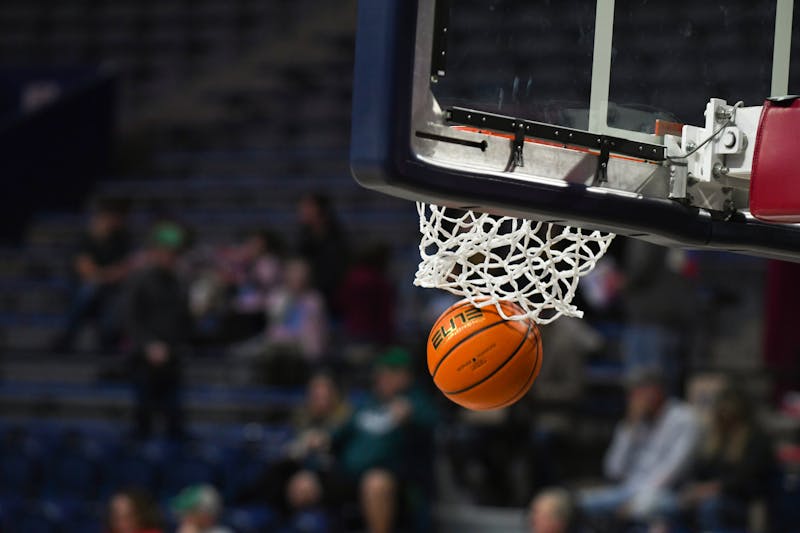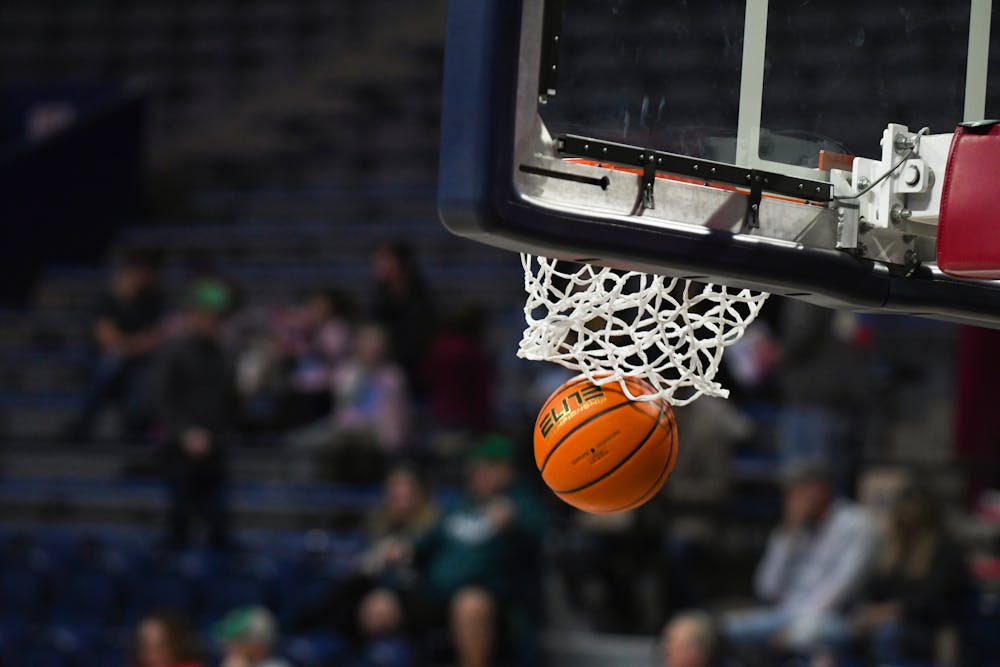The Ivy League needs to make structural changes, not just pay their athletes.
18 minutes ago
Sports columnist Piper Slinka-Petka argues that even if the Ivy League participated in pay-for-play, more athletes would not be attracted to the Ancient Eight.
Credit: Samantha Turner
While the term “Ivy League” was first coined to describe a coalition of northeastern schools that played against each other, the schools within it were never really intended to be sports powerhouses. When the conference was created in 1954, it was created on a shared philosophy of academic excellence. It was supposed to be for men of “scholarship” and “character,” who also engaged in athletics on the weekends.
This distinction is still the Ivy League’s motto today: no athletic scholarships, no FCS playoff appearances until this year, and a severe lack of commercialization. The conference has resisted the money-driven culture that has permeated college sports. Ivy League athletes aren’t given packed stadiums, hefty NIL deals, or lucrative facilities. What they are promised, though, is an elite education, prestige, and the chance to keep playing even if they aren’t 5-star recruits.
It’s starting to look like this tradeoff isn’t enough anymore.
This offseason for Ivy basketball, former Penn guard Sam Brown transferred to Davidson, while former Princeton guard Xaivian Lee became a Florida Gator. These athletes were stars for their schools, yet traded it in for the platforms, money, and opportunity that the Ivy League simply can’t give its athletes anymore — who wouldn’t?
The House v. NCAA ruling and other previous lawsuits have completely altered the ways college athletes interact with their programs. Schools can no longer hide behind amateurism, and athletes are entitled to the money made from their names, image, and likeness, as well as revenue from games. Coaches getting paid millions while athletes get nothing: gone. Ticket sales, TV rights, and merchandise gains without athletes profiting: gone.
In powerful conferences, this has meant alumni forming gigantic NIL collectives and athletes turning into microcelebrities with drink sponsorships.
What does this mean for the Ivy League? It means we could finally incentivize top recruits to play at schools like Penn or Harvard. Why choose between prestige and heavy pockets when you could have both?
In reality, nothing about House v. NCAA and other developments in collegiate athletics forces the Ivy League to change anything.
The conference has one of the most, if not the most, extensive (and wealthy) alumni networks with money to put on the table; the question is, will we do it? Likely not. The Ivy League and its students have chosen tradition and academic excellence over competitiveness for decades. Naturally, most students attend Penn and its counterparts for elite education, so why put their money towards a lacking sports program when it could go towards the education that brought them there in the first place?
Even if we managed to get our athletes big-time contracts and rally our alumni to pool funds for our athletes, would it really make star recruits choose us over places like North Carolina or Michigan?
Probably not. Because money is only a part of the deal. Facilities, exposure, playoff access, and a school culture that makes athletics a priority are factors that make a big difference. Singing “Country Roads” at the backyard brawl night seems like a small thing, but to a recruit considering West Virginia, it means loyalty, dedication, and unwavering support. That kind of culture can’t be created in a week, and the Ivy League hasn’t ever invested in it.
Maybe that’s the point. The Ivy League has never wanted to be Alabama, and most students don’t want it to be. Perhaps some schools don’t have to be good at athletics, either. Students fight for spots at Penn for career gain, not Saturdays at Franklin Field. Athletics are essentially a side dish instead of the main course Penn has to offer.
Sign up for our newsletter
Get our newsletter, DP Daybreak, delivered to your inbox every weekday morning.
Yet, if athletics is really something important to our conference and the Ancient Eight want to take a step towards greatness that the Ivy League wants to take, it can. The House v. NCAA ruling presents us with a decision. The money is there if alumni want to spend it. The recruits are there if the Ivy League decides to pursue them. However, unless administrators, alumni, or even students actually choose competitiveness, Ivy League athletics remains stagnant.
The rules of collegiate athletics have changed, but the Ivy League has not changed what it stands for: tradition and academic excellence. Until we decide differently, Penn athletes will continue to play hard, coaches will continue to train hard, just to watch recruits pass on us, and players will leave for greener pastures.
PIPER SLINKA-PETKA is a College sophomore studying health and societies from West Virginia. All comments should be directed to dpsports@thedp.com.
The Daily Pennsylvanian is an independent, student-run newspaper. Please consider making a donation to support the coverage that shapes the University. Your generosity ensures a future of strong journalism at Penn.


